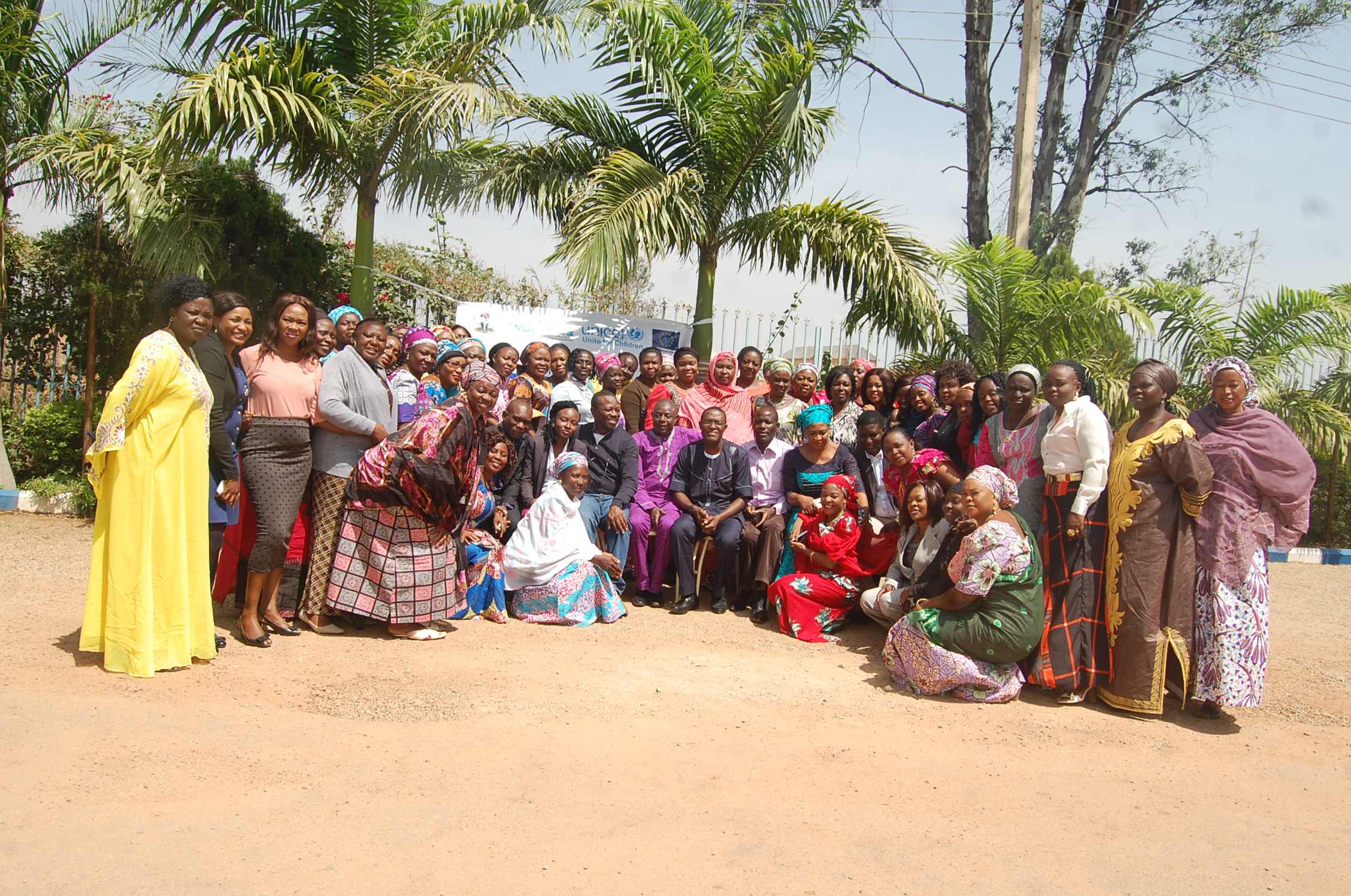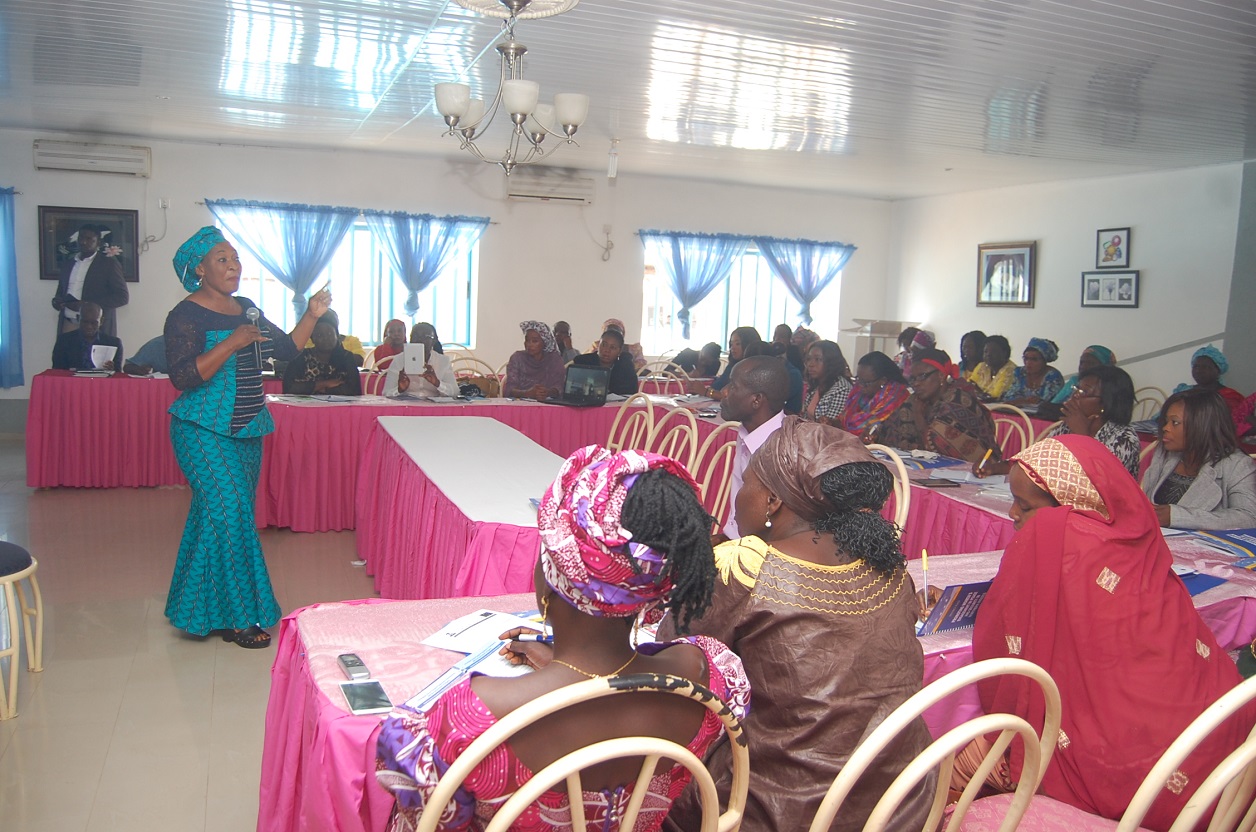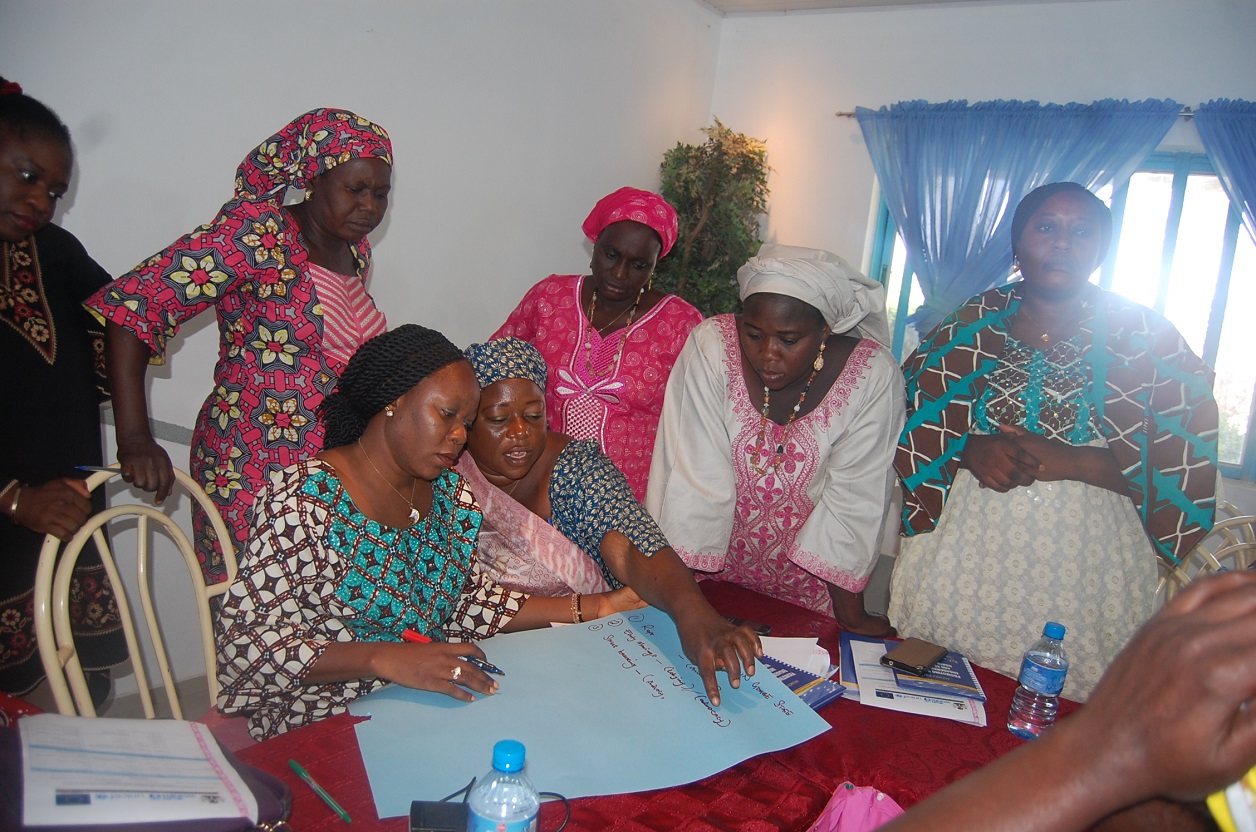Capacity Building Workshop for female journalists on Gender-Sensitive Reporting in Nigeria
Date:
Abuja, Nigeria, 17th November, 2016 – The United Nations Entity for Gender Equality and the Empowerment of Women (UN Women), under the Northern Nigeria Women, Peace and Security Programme funded by the European Union, organized a four-day capacity building workshop on gender sensitive reporting for female journalists in Northern Nigeria. This took place on the 8th and 9th of November, and on the 15th and 16th of November, 2016 at HBC Resort, Plateau State and Hometel Derivatives and Suites, Adamawa State respectively. A total of 120 participants and stakeholders of the programme were in attendance at the workshops. These include members of the Nigeria Association of Women Journalists (NAWOJ), representative of the Federal and State Ministries of Women Affairs and Social Development, Ministry of Budget and National Planning (MBNP), UN Women Media Network, staff of UN Women and the media.
The Capacity Building Workshop was conducted in Plateau and Adamawa States to train female journalists on the UNSCR 1325, the Nigeria Action Plan, gender sensitive reporting, safety during reporting, and other gender related issues. The participants comprised of both print and electronic media journalists from Abuja, Plateau, Bauchi, Gombe, Adamawa, Yobe and Borno States.
Nigeria Association of Women Journalists (NAWOJ) president, Ms. Ifeyinwa Omowole addressing the female journalists
At the capacity building workshop, the Women Peace and Security Deputy Programme Manager, Mr Peter Mancha gave an overview of the Northern Nigeria Women, Peace and Security Programme. He highlighted the objectives of the programme which are to: strengthen women’s role in conflict prevention, peace-making and peace building; mitigate the impact of conflict upon women and girls (including Gender-Based Violence); and enhance a conducive environment for the implementation of United Nations Security Council Resolution (UNSCR) 1325 and monitoring of gender equality commitments in Nigeria. Mr Mancha also highlighted key partners of the programme, programme activities, and expected results of the programme.
The UN Women Communications Consultant, Oluwatosin Akingbulu, also gave an overview of the UN Women Media Network, also known as the Nigeria Association for Peace and Gender Practitioners in Media. She explained the purpose of the network which includes promoting the engagement of women in peace and security, understanding the UNSCR 1325, highlighting gender equality commitments among other objectives. She also encouraged all participants of the workshop to join the media network and work towards achieving its objectives.
The National President of the Nigeria Association of Women Journalists (NAWOJ), Ms Ifeyinwa Omowole, while giving her goodwill message, highlighted that women are the key actors in peace building. She said ‘’women are the most affected when there is conflict, and that is why there is an ongoing advocacy for government to involve women in peace and security structures.’’ Ms Omowole encouraged the female journalists to take lessons learnt from the workshop and replicate in their work. She also charged the journalists to change their style of reportage to include the use of a gender lens, and also engage their various communities.
The Director of Planning and Research, Mr Retshik Tireng, who represented the Commissioner for Women Affairs in Plateau State, in his goodwill message, highlighted the fact that information is power and it can impact public discourse. In Adamawa, the Permanent Secretary, Adamawa State Ministry of Women Affairs and Social Development, Hajia Maisaratu Bello, gave a good will message on behalf of the Commissioner for Women Affairs. She mentioned that the people of Adamawa are counting on all journalists who have participated in the training, to carry out gender sensitive reporting in such a way that highlights the specific needs of women and girls affected by the insurgency, as well as enhance the development of the state.
Female journalists during a group work session
During the training session, Mr Mancha presented the topic ‘Understanding the Concept of Gender’. He described Gender as a key to achieving sustainable development. He highlighted the difference between sex and gender, explained the elements of gender, and several other gender concepts. Mr Mancha also talked about the concept of ‘Glass Ceiling’ which refers to women limited from rising above a certain level, especially in organizations. He emphasized the importance of organizations integrating gender policies to eliminate glass ceilings for women. He rounded up his session with the words: ‘’Human development, if not engendered, is endangered’’.
Other sessions during the workshop included video presentations on gender concepts by one of the workshop facilitators, Mr Jide Atta. A session on ‘Peace Journalism and Gender Sensitive Reporting’ was anchored by a co-facilitator, Dr Edward Akpomera. He emphasized the importance for every journalist to do research and go beyond the press release to find out what is really happening, point out alternatives to solve the issues, and help contribute to the management of conflict. He also mentioned that the peace journalist would deliberately emphasize that violence is never a lasting solution to conflict. Mr Egbe Okpewuru, Director, Federal Ministry of Women Affairs and Social Development, also made a presentation on ‘’Understanding the UNSCR 1325 and the National Action Plan’’, explaining various ways in which women in media can advance the UNSCR 1325.
The workshop featured technical sessions where participants were placed in groups to identify gender issues, sex issues and gender stereotypes in their community, and also to share various perspectives and experiences. Afterwards, participants were presented with their certificates of participation, and inaugurated into the UN Women Media Network.


